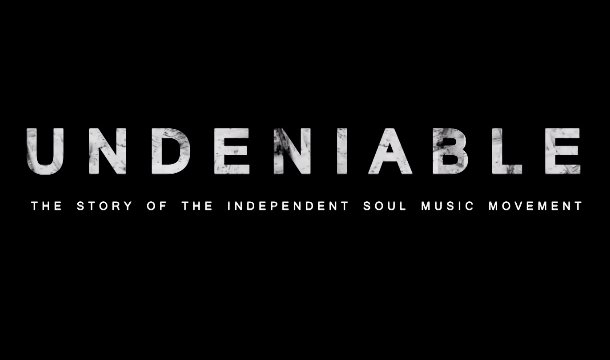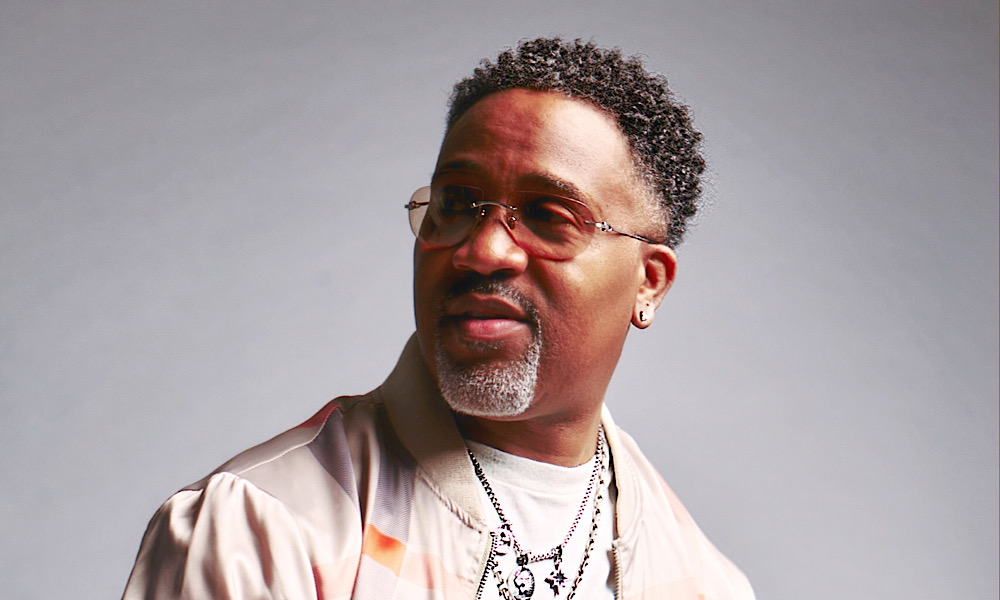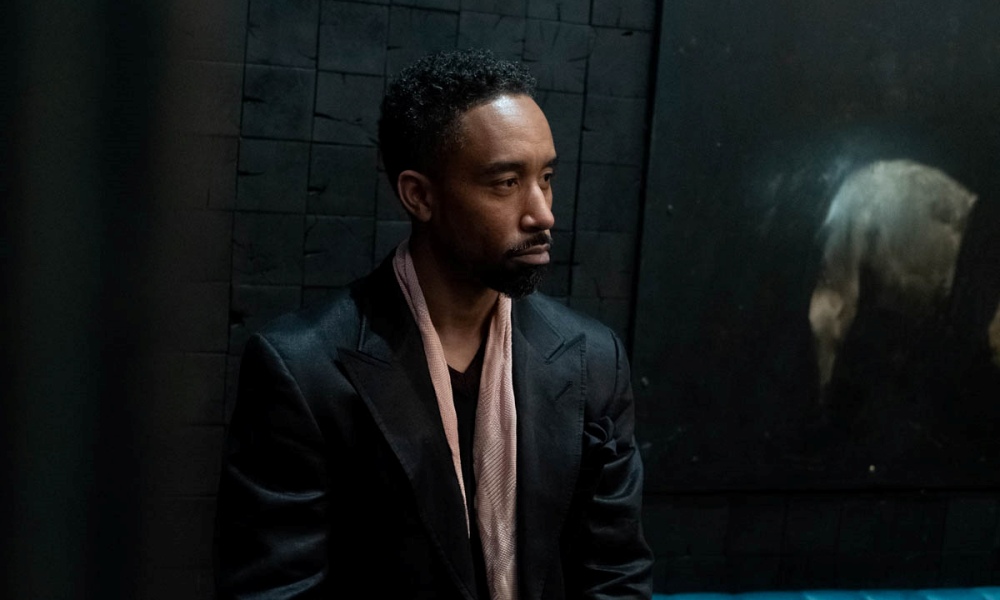Soul music has been a driving force in the success of other music genres like Hip Hop and Pop, but the recognition has been short, at times nonexistent, on the commercial playing field. The genre, with greats like Jill Scott, Erykah Badu, Musiq Soulchild, and many others have lost the mainstream luster that attracts cheering teens, in part because it’s a tight-knit community that refuses to be pigeonholed into a specific creative wave.
Former artist manager of Innosphere, John C. Jointer, spent years working behind the scenes before deciding to document a thriving movement that falls slightly below shining lights.
His forthcoming film, 'Undeniable – The Story of The Independent Soul Music Movement', focus specifically on indie soul artists and their road to becoming known. While still in the production process, Singersroom spoke with the Mr. Jointer about soul music blockades, future innovators and the current definition of the Soul Movement.
Pull up a chair and get educated!
Why did you think it was necessary to tell the story of the independent soul movement?
In 2009, I managed a Soul/R&B duo called Innosphere (producer Kenny Keys and singer/songwriter Nina Rae). We released an EP titled "Shine". Once the project dropped, I spent the next year marketing and promoting Innosphere and their music to various soul websites, online magazines, DJs, radio stations and event promoters around the country and overseas.
What I began to notice was this interwoven connected community of individuals who all worked independently, and together, all with the same mission as I had: pushing and promoting soul music. And, I realized that this community extended all around the country, and throughout the world. And, this community was creating amazing music, and had a strong and devoted following of fans that [were] extremely loyal to indie soul music and the artists making it. The entire atmosphere around the music seemed very unique from anything that I had ever encountered. It was that unique vibe and atmosphere that opened my eyes to the incredible story that the independent soul music community had to tell.
Hip Hop culture is based on DJ-ing, B-Boying, emceeing, graffiti. Were you able to define the culture elements of soul within the film?
This is a very interesting question, as 'how to define soul music' is one of the questions we posed to our subjects in the film. So far, we are finding that artists’s definition of soul is based on their own personal experiences, and how they first came to know the genre and the music. We've also found that one hallmark, regardless of soul's many subgenres, is a goal focus on philosophical tradition of emotional honesty and human connection. A desire to touch someone they've never met before but might share a human experience with. I think that's why it's so often been hailed as "honest music."
But, we are still very early in production and have many more artists' perspectives to explore. We’re will seeing if there are more common cultural elements that the artists share within soul music.
What does the current soul movement stand for today?
I think that the current soul movement stands for establishing itself as a viable, living, breathing entity. As we started to approach folks within the indie soul community about the film, the most common response we've gotten is "it's about time!" I think that this is a movement that feels as if its time has come, and wants to be recognized for its growth, its longevity, and its sustainability. This movement began as a small group of artists who sought to gain access into an industry that would not make room for them, and has grown into a worldwide network of accomplished individuals who have succeeded outside of the mainstream machine. And, I believe that their current stance is that they want to be recognized and acknowledged for having made a way out of no way at all.
In the trailer, Carmen Rodgers says, "In the age with so much technology, people have so much accessibility to find out so much information. The average R&B fan still believes that good music is on the radio and that outside of the radio no good music exist." How can artists do a better job of communicating to listeners that there are more options?
This has been the plight of the indie soul music movement and community for the past 15+ years. Gaining access to the listeners, while not having the marketing and promotional muscle behind them that their major label counterparts have enjoyed.
However, I think that indie artists should continue to use the tools that have gotten them this far, such as the internet retail stores (CD baby, iTunes, Amazon), regional event promoters who book indie artists, public and non-commercial radio stations that allow easier access to their airwaves without the stagnating politics that can come with commercial radio airplay. Also, artists can learn to leverage Internet radio, podcasts, music blogs, licensing partnerships and co-branding opportunities with lifestyle brands with shared cultural values, iconography, and messaging. Even video games could potentially be an emerging opportunity as a revenue stream, the way ringtones once presented nearly a decade ago.
What do you think is the biggest blockade for soul music in terms of music reaching the mainstream audience?
I think that this year's Grammy telecast was a prime example of the biggest blockade for soul music reaching the mainstream. The vast majority, if not all of the soul and R&B categories were not even televised. A move like that creates this implied notion that this particular genre of music isn't worthy of being televised. So, what happens is people stop caring and don't even look for it anymore on that Grammy platform, which is the largest and most visible platform in this industry! Furthermore, it's indicative of what has happened to radio since media consolidation became commonplace following the 1996 Telecommunications Act. Once upon a time, you could get airplay if a DJ liked your music, then later if the program director liked your sound. Now, only songs that have major marketing money behind it AND have been approved by the radio metric like the Portable People Meter by Arbitron will get any airplay. And unfortunately, despite all of these other tools, like Spotify and Pandora, terrestrial radio is still the primary way the majority of listeners "discover" music.
It just seems as if those entities that control access to the mainstream audience have decided that only a certain type of music will be allowed to be seen and/or heard by the masses. But, what that does is deprive people of the right to make that decision for themselves.
That's why a film like "Undeniable" is so important. If the "powers that be" won't grant this music access to the masses, then we will create our own access through another medium. In this case, film.
Is it seen as a negative by indie soul singers when a fellow singer signs a record deal with a major record label (i.e. Aloe Blacc or Mayer Hawthorne)?
No. If there is one thing that has been consistent across the board with all indie soul artists, it’s that they always support and cheer for their fellow artists. And, one artist breaking through and making a major splash can only mean good things for the community and the movement as a whole.
As the soul movement moves into the future, which artists will innovate the genre?
The future is indeed bright for the independent soul music movement. There are some amazing artists that I believe will carry the torch for this movement for a long time to come. And the really amazing thing is it will be artists from all over the globe.
Artists that come to mind are: Jesse Boykins III, Mar (from Amsterdam), The Foreign Exchange, Laura Mvula, Daley, and Josephine. These are just a few of the artists that our film team feels will play a major role in guiding the movement into the future.
When will the film be released?
We are tentatively scheduled to end production by August 2014. We hope to be ready for a Spring 2015 release. Keeping our fingers crossed!








